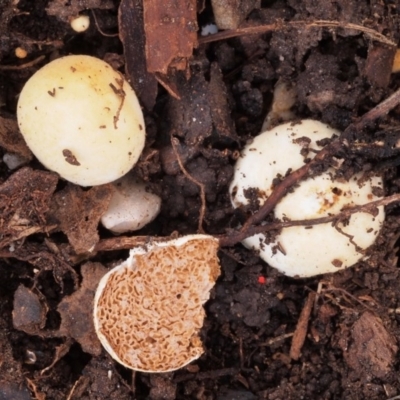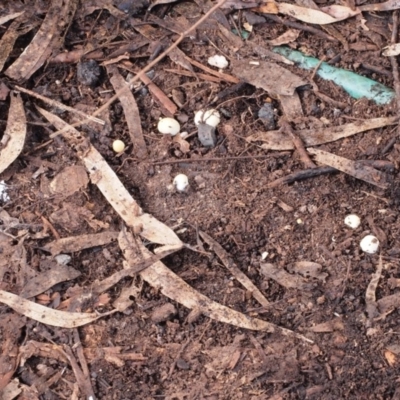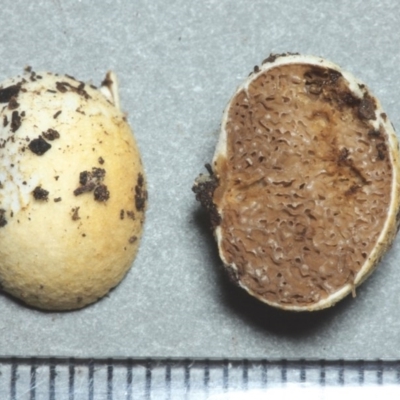Truffle species
Most people will have heard of the European gourmet truffles, fungal fruitbodies that develop underground. Those species do not occur naturally in Australia, but have been introduced. However, Australia is rich in native fungi that produce produce fruitbodies in similar ways. Some people would confine use of the word truffle to the European gourmet species and insist on everything else being called truffle-like. However, many use the word truffle in a broad sense, to include anything that is truffle-like. In technical works you will also see the phrases hypogeous fungi or sequestrate fungi applied to truffles.
In general, truffles are found wholly underground or at least partially buried – but some appear on soil and there are even a few stalked truffles. Most truffles are more or less spherical or ellipsoid (albeit sometimes with irregular bumps) and, unless you look inside, you may think you have an immature puffball or stinkhorn. From the outside a stalked truffle could be mistaken for an immature mushroom, with the stem developed but the cap not yet open. Cut a truffle open and you will usually see numerous tiny chambers within, either empty or filled (depending on species).

































































